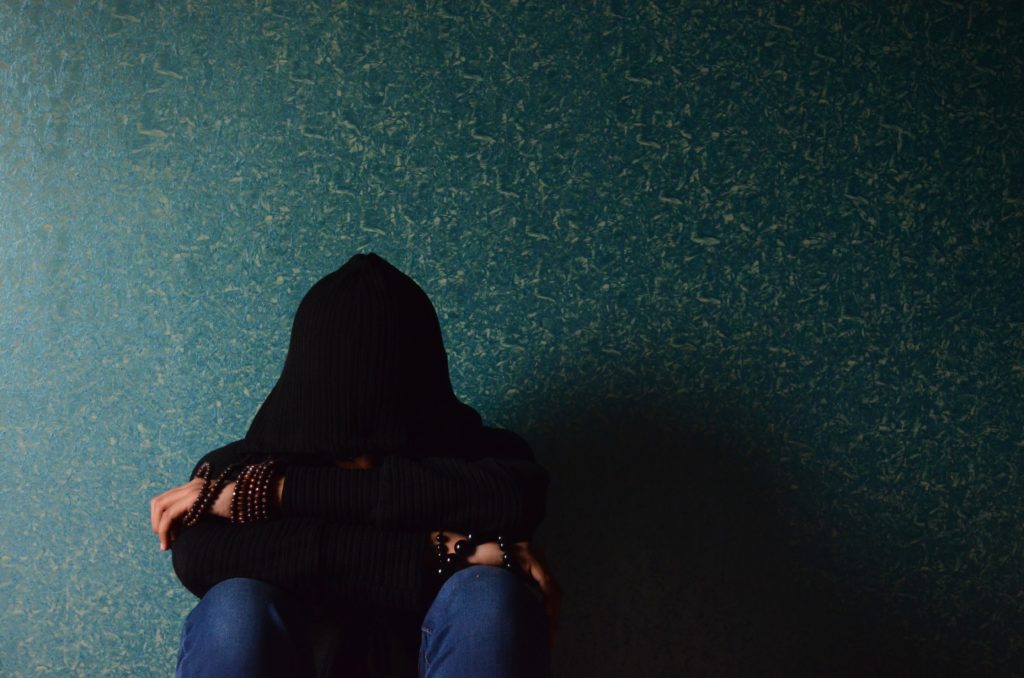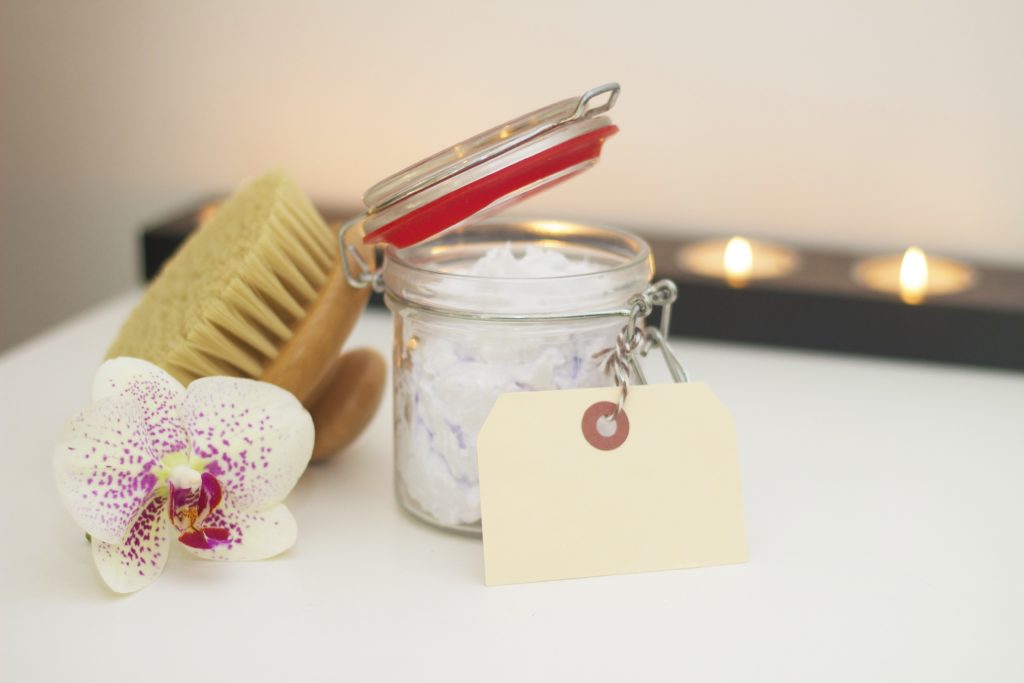When someone experiences depression in their day-to-day life, it can be challenging to maintain a steady level of self care. If you or someone you love has been diagnosed with depression, you might be familiar with how this plays out. Luckily, there are some steps you can take, both large and small, that can help you establish some practices of self care for depression.
What is Depression?
Depression, also called clinical depression or major depressive disorder, is a type of mood disorder. There are several types of depression, including related conditions like SAD (Seasonal Affective Disorder) or Postpartum Depression. But all depressive disorders have to do with low moods, chemical imbalances in the brain, and sometimes environmental factors.
Every person can feel depressed from time to time. However, chronic depression is far more serious. In some cases, it can make life feel unmanageable. Depression can negatively impact a person’s life, as well as their family and friends.
Nearly 7% of adults in the United States have experienced at least one major depressive episode, according to the National Institute of Mental Health (NIMH, source on Major Depression). Depression is one of the top three mental health disorders in America, along with anxiety (the #1 most common) and attention disorders (such as ADD or ADHD).

Symptoms of Depression include:
- General negative moods or feelings of sadness
- An absence or lack of motivation
- Thoughts of suicide or death
- Hopelessness
- Feeling helpless in life
- Fatigue; decrease in energy
- Indecisiveness
- Irritability; easily frustrated
- Excessive sleeping, or lack of sleep (insomnia)
- Sensitive to the words or actions of others
- Being extremely hard on oneself; feelings of being unworthy
- Isolation and avoidance from loved ones
- Physical symptoms like headaches, muscle pain, neck pain, and stomach issues
Various symptoms of depression can range differently from person to person. For one individual, it may result in suicidal thoughts, or being unable to get out of bed for the day. For another person, though, it might be more subtle and cause a lack of motivation in life or a lack of overall “purpose,” while still being able to carry out daily obligations and seem fine.
It’s important to reach out and talk to someone if you fear you might have depression symptoms. Trying to deal with any mental health disorder by yourself is rather difficult. Having some sort of support system in your personal life can make the world of a difference! If you feel a need, you can always call us at Prevail Intervention to ask about what you can do to find this proper support.
What is Self Care?
Self care is the term for being able to maintain a healthy level of care for yourself. This includes physical, emotional, and hygienic care, but it can also cover a wider variety of knowing your own needs and being able to fulfill those needs adequately.
Basically, self care is you providing care to yourself, for yourself. It’s a way to recharge and keep a steady routine by doing small simple actions every day that help you feel and stay balanced.
Another thing to consider is that self care looks different depending on each individual. Whatever you do for your personal self care for depression should be something you can enjoy, not something you dread doing each time. However, there are necessary self care actions we all have to do, that we won’t exactly be excited about doing. For example, flossing and brushing your teeth every day might not be your favorite thing in the world. But you still do it to care for your teeth (well, hopefully!).

Why is Self Care for Depression Important?
How is depression debilitating when it comes to self care? Self care for depression is important because, especially when we experience major depressive episodes, we need all the care we can get from ourselves. When we get depressed or feel stuck inside a major depressive episode, it can be common to neglect even the most basic self-care routines, like bathing, eating right, or cleaning the house we live in. These seemingly small tasks get put off and can feel like a mountain to climb. Eventually, these even pile up until we wake up one day and feel ashamed or too tired to deal with any of it, further increasing the already overwhelming sense of depression.
Therefore, when we can find the right routine for our self care for depression, it just makes life a little easier.
Although self care for depression is important, it is not by any means a way to try to “cure” yourself completely. Self care for depression can help prevent exasperated symptoms from remaining neglected and therefore building up. Additionally, it helps to manage the symptoms that make life feel overly heavy. It can help you remember that major depressive episodes will pass gradually and that the symptoms of depression do not define your entire life.
How do I Care for Myself when I’m Depressed?
1. Physical Health
The first priority of self care is your physical health and well-being. Are you getting enough sleep, staying hydrated, and eating at least semi-healthy? Our sleep patterns can fluctuate with depression. It’s increasingly difficult to function throughout the day if you can hardly feel rested or energized.
The foods that we eat can also have more of an impact on us than we often realize. Personally, the older I get, the more I realize too much junk food can take a toll on my physical and mental state, sometimes even several days after being eaten. There is, in fact, substantial scientific proof that your “gut” bacteria (some doctors call the stomach “the second brain”) drastically affects serotonin and dopamine production. Try to prioritize your diet full of ingredients that will help you, rather than harm you.

2. Mental Health
Mental health is another obvious thing to pay attention to when trying self care for depression. Seeing a psychologist or medical professional is always recommended as they can help focus on figuring out what methods work best for you. Maybe you take medication, maybe you could benefit from medication but never knew it before. Even seeing a counselor who is familiar with clinical depression can help you talk about, understand, and find amazing coping habits that can improve your life. Try to find a therapist who you really relate to and feel comfortable talking with.
3. Relationships
Friendships and support is also an important part of life that gets put on the backburner when dealing with depression. Nearly everything in the natural world, including humans, thrive better together. We all need that sense of family, friends, community, and support in our lives. You may have learned that it makes you “strong” to try to do everything on your own, but in the long run, isolation only hurts your life. Make a decision to reconnect or maintain the pre-existing healthy relationships in your environment. Additionally, you can start new friendships, reach out for support, and prioritize new community to help each other.
Real Examples of Self Care for Depression
Now that we reviewed the most crucial parts of caring for yourself when you’re depressed, such as your physical and mental health, and relationships, here is where the actual “self care” for depression comes in.
4. Keep Doing Things You Enjoy
What do you enjoy doing? Make a list of 10+ activities that bring you joy, hope, or peace. Do at least one of these things per day. Don’t neglect your unique interests that make you you.
5. Remember to Move
Move your body to sweat at least three days per week. When we neglect exercise, the body becomes stiff, rigid, and tense. These feelings inside the body can contribute to “stuck” feelings that depression causes. Moving and breathing help clear out the stagnant energy of the body and mind to help boost endorphins, providing ease to depression symptoms.

6. Let Yourself Relax
Although it’s important to stay active and let your body move around, it’s also helpful to let yourself relax. If you’re the type of person who is always “go, go, go”, pay attention! Sometimes you need to take a few hours to just do nothing. Read, watch a funny TV show, go to the beach, take a bath or get a massage. Just as tension in the body can build up to increase depression or anxiety, so does the mind and once in a while, it’s necessary to just let go and give it some space to relax.
7. Skincare is Valid Self Care
How often do you think about your skin? Did you know it’s the largest, most absorbent organ in your body? Even though everyone’s skin has different qualities (dry, oily, sensitive, etc.) it’s important to take care of your skin. Women are more than likely to be familiar with caring for the skin, but men can practice skincare too (it’s not “weird”). Some people find it fun to try different products but try to keep it simple. Inexpensive, natural products can help your face stay nourished and glowy as opposed to using nothing at all.
Physical touch is another natural mood-boosting activity a lot of us forget about. And by physical touch, I’m not talking about a quick one-night stand. I mean the real hugs, the assuring back rub, even the simple act of bathing all provide the caring touch our skin craves.
8. Get into the Present and Out of the Past
Many of us who wrestle with depression, either clinical or temporary emotional depression, may tend to get hyper-focused on the past. Regret, shame, grief, inadequacy, anger, disgust, and envy are emotions that rely on thinking about the past. To manage depression and to grow as an individual, the past needs to be confronted, but not remain the sole focus of your life. Even more, when we dwell on the past it can prevent us from moving forward and continuing our personal stories.
Practice becoming present, or aware of the present moment. Some people do this by meditating, others do it by doing things like cleaning, walking in nature, hanging out with friends, or doing something along those lines. Anything that helps you remember all the things you’re grateful for and makes you appreciate the moment should do the trick.
9. Avoid Toxic Mind-Altering Substances
Avoid drugs and alcohol, as these substances depress the body and mind. Hard drugs make the brain work harder to try returning to homeostasis (natural balance). If you happen to struggle with addiction as well as depression, or some other form of mental illness, this is called Dual Diagnosis and might require specific treatment. There are inpatient, outpatient, and even online tools to help you overcome addiction while at the same time, addressing the mental illness as it relates to substance abuse. We have a powerful team of professionals who help people with dual diagnosis, so if you’re curious about this subject, call us to have a conversation.
10. Spiritual Self Care
If you have a spiritual/religious background, this can also be a method of self care for depression. You might find a benefit from attending your church, a local meetup group, committing to prayer, or whatever else makes you feel connected to the spiritual side of life. Staying in touch with your personal higher power, if you have one, can help you feel more hopeful, thankful, and able to let go of pressures you cannot control.

More Help for Depression
These options of self care for depression can help tremendously. However, you still might find you need further help from an outside source, and that’s okay!
Of course, if you have thoughts of suicide or feel this is an immediate emergency, call 9-1-1. Yuo can also call the Suicide Prevention Hotline at 1-800-273-8255.
Contact us if you need further help finding the right mental health help for you or your loved one. A caring professional can be one of he greatest resources for you when trying to find help for depression. The good news is, there are many professionals out there who genuinely care to help people live fulfilling lives while managing clinical depression. Help is possible, even if you feel hopeless right now.
Sources
National Institute of Mental Health: Depression Page
“The Gut-Brain Axis: The Missing Link in Depression” – Clinical Psychopharmacology and Neuroscience (2015)
APA: How Psychologists Help with Depressive Disorders (2016)
